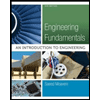8.20 Two routes connect a suburban area and a city, with route travel times (in minutes) given by the expressions t₁ = 6 + 8(x₁/c₁) and t₂ = 10 + 3(x2/c2), where the x's are expressed in thousands of vehicles per hour and the c's are the route capacities in thousands of vehicles per hour. Initially, the capacities of routes 1 and 2 are 4000 and 2000 veh/h, respectively. A reconstruction project on route 1 reduces the capacity to 3000 veh/h, but total traffic demand is unaffected. Observational studies note a 35.28-second increase in average travel time on route 1 and a 68.5% increase in flow on route 2 after reconstruction begins. User-equilibrium conditions exist before and during reconstruction. If both routes are always used, determine equilibrium flows and travel times before and after reconstruction begins.
8.20 Two routes connect a suburban area and a city, with route travel times (in minutes) given by the expressions t₁ = 6 + 8(x₁/c₁) and t₂ = 10 + 3(x2/c2), where the x's are expressed in thousands of vehicles per hour and the c's are the route capacities in thousands of vehicles per hour. Initially, the capacities of routes 1 and 2 are 4000 and 2000 veh/h, respectively. A reconstruction project on route 1 reduces the capacity to 3000 veh/h, but total traffic demand is unaffected. Observational studies note a 35.28-second increase in average travel time on route 1 and a 68.5% increase in flow on route 2 after reconstruction begins. User-equilibrium conditions exist before and during reconstruction. If both routes are always used, determine equilibrium flows and travel times before and after reconstruction begins.
Traffic and Highway Engineering
5th Edition
ISBN:9781305156241
Author:Garber, Nicholas J.
Publisher:Garber, Nicholas J.
Chapter6: Fundamental Principles Of Traffic Flow
Section: Chapter Questions
Problem 26P: The arrival times of vehicles at the ticket gate of a sports stadium may be assumed to bePoisson...
Related questions
Question

Transcribed Image Text:8.20 Two routes connect a suburban area and a city,
with route travel times (in minutes) given by the
expressions t₁ = 6 + 8(x₁/c₁) and t₂ = 10 + 3(x2/c2),
where the x's are expressed in thousands of vehicles
per hour and the c's are the route capacities in
thousands of vehicles per hour. Initially, the
capacities of routes 1 and 2 are 4000 and 2000 veh/h,
respectively. A reconstruction project on route 1
reduces the capacity to 3000 veh/h, but total traffic
demand is unaffected. Observational studies note a
35.28-second increase in average travel time on route
1 and a 68.5% increase in flow on route 2 after
reconstruction begins. User-equilibrium conditions
exist before and during reconstruction. If both routes
are always used, determine equilibrium flows and
travel times before and after reconstruction begins.
Expert Solution
This question has been solved!
Explore an expertly crafted, step-by-step solution for a thorough understanding of key concepts.
Step by step
Solved in 2 steps with 8 images

Recommended textbooks for you

Traffic and Highway Engineering
Civil Engineering
ISBN:
9781305156241
Author:
Garber, Nicholas J.
Publisher:
Cengage Learning

Engineering Fundamentals: An Introduction to Engi…
Civil Engineering
ISBN:
9781305084766
Author:
Saeed Moaveni
Publisher:
Cengage Learning

Traffic and Highway Engineering
Civil Engineering
ISBN:
9781305156241
Author:
Garber, Nicholas J.
Publisher:
Cengage Learning

Engineering Fundamentals: An Introduction to Engi…
Civil Engineering
ISBN:
9781305084766
Author:
Saeed Moaveni
Publisher:
Cengage Learning